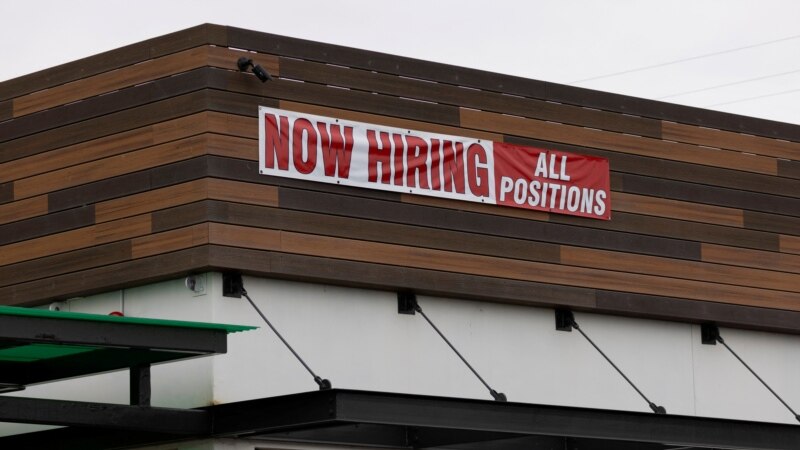
Fewer Americans applied for unemployment benefits last week reflecting a low number of layoffs across the economy. Jobless claims fell by 18,000 to 215,000 for the week ending February 26, from 233,000 the previous week, the Labor Department reported Thursday. The four-week average for claims, which compensates for weekly volatility, fell by 6,000 to 230,500. In total, 1,476,000 Americans were collecting jobless aid the week that ended Feb. 12, a small uptick of 2,000 from the previous week's revised number, which was its lowest level since March 14, 1970. First-time applications for jobless aid generally track the pace of layoffs, which are back down to fairly healthy pre-pandemic levels. The Labor Department releases its February jobs report on Friday. Analysts surveyed by the financial data firm FactSet forecast that the U.S. economy added 400,000 jobs last month. In January, the U.S. economy added a whopping 467,000 jobs and revised December and November gains upward by a combined 709,000. The unemployment rate stands at 4%, a historically low figure. The U.S. economy has rebounded strongly from 2020's coronavirus-caused recession. Massive government spending and the vaccine rollout jumpstarted the economy as employers added a record 6.4 million jobs last year. The U.S. economy expanded 5.7% in 2021, growing last year at the fastest annual pace since a 7.2% surge in 1984, which also followed a recession. Inflation is also at a 40-year high — 7.5% year-over-year — leading the Federal Reserve to ease its monetary support for the economy. The Fed has said it will begin a series of interest-rate hikes this month in an effort to tamp down surging prices. Fewer Americans applied for unemployment benefits last week reflecting a low number of layoffs across the economy. Jobless claims fell by 18,000 to 215,000 for the week ending February 26, from 233,000 the previous week, the Labor Department reported Thursday. The four-week average for claims, which compensates for weekly volatility, fell by 6,000 to 230,500. In total, 1,476,000 Americans were collecting jobless aid the week that ended Feb. 12, a small uptick of 2,000 from the previous week's revised number, which was its lowest level since March 14, 1970. First-time applications for jobless aid generally track the pace of layoffs, which are back down to fairly healthy pre-pandemic levels. The Labor Department releases its February jobs report on Friday. Analysts surveyed by the financial data firm FactSet forecast that the U.S. economy added 400,000 jobs last month. In January, the U.S. economy added a whopping 467,000 jobs and revised December and November gains upward by a combined 709,000. The unemployment rate stands at 4%, a historically low figure. The U.S. economy has rebounded strongly from 2020's coronavirus-caused recession. Massive government spending and the vaccine rollout jumpstarted the economy as employers added a record 6.4 million jobs last year. The U.S. economy expanded 5.7% in 2021, growing last year at the fastest annual pace since a 7.2% surge in 1984, which also followed a recession. Inflation is also at a 40-year high — 7.5% year-over-year — leading the Federal Reserve to ease its monetary support for the economy. The Fed has said it will begin a series of interest-rate hikes this month in an effort to tamp down surging prices.
Most Read